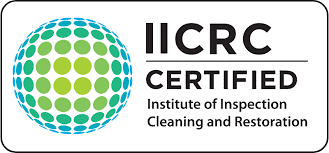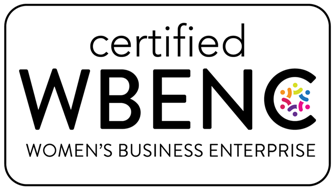Frequently Asked Questions
Crime scene and trauma cleanup is a little known industry.
It’s not often you’d or anyone would need our services. Due to the rare occurrence of field of work, many people have lots of questions regarding how the whole process works, or common misconceptions about how incidents are handled after the police, coroner and emergency service crews release and leave the scene.
Crime Scene Cleanup
Crime scene cleanup is a service provided to home and business owners after a traumatic incident occurs on the property. After police officials release a scene, there are various hazardous materials and crime scene investigation materials that are left behind. Some examples would be blood, bodily fluid, and fingerprint dust. Even though the coroner is responsible for removing the body from the scene, these aforementioned hazards are left for the home or business owner to remove. Due to the dangerous and damaging aspects of the hazards (Due to blood-borne pathogens), crime scene cleanup companies are often contracted to properly dispose, clean and restore a crime scene back to its original, safe space.
Many people believe that after a crime occurs in a home or business, the police, medical examiner or coroner is responsible for cleaning the scene, and removing the body. This is untrue. They are only responsible for removing the body after an investigation at the morgue. The family or business owner is liable for hiring a professional company that specializes in remediation in living and work spaces so that the transmission of diseases and blood borne pathogens is safely removed. Due to the nature of these cleanups, homeowners insurance will usually cover costs of the clean up.
Crime scene cleanup services are performed by companies known as crime scene cleanup companies. Crime scene cleanup companies employ bioremediation technicians which possess proper certifications, experience, knowledge, expertise, and equipment in remediation and properly cleaning a wide variety of blood and bodily fluids from various types of surfaces, locations and items.
Depending on the type of scene and the severity of damage, each crime scene is approached differently. However, the method for removing blood and bodily fluids has a general process.
- First, we remove contaminated items that can be discarded such as clothing, small disposable items, and nonessential furniture which cannot be cleaned.
- Once the area is clean of these items, we begin using a chemical solution that cleans blood and eradicates blood borne pathogens on contact.
- Every inch of the affected area is treated with this solution.
Crime Victims Fund is set up in every state of the United States. They are set up by the Office for Victims of Crimes. If your home was affected, and it was directly related to a documented crime, the Crime Victims Fund will cover or partially cover costs associated with clean up services. You can check the link below to get contact information for your local state’s office.
https://www.ovc.gov/map.html
Suicide cleanup is a clean up service used after someone commits or attempts suicide in their home or business. While most of the procedures and processes of the clean up match crime scene cleanup services, there is usually more of an emphasis on home-based cleaning, and we stay in direct contact with the victim’s family to ensure a caring and compassionate experience.
Unattended death is when a person expires, usually within their home, and is often undiscovered for a long period of time. Due to the physical nature of the human body, bodily fluids over time, in addition to decomposition, stains and contaminates the area they passed in. This is accompanied by strong odors, and sometimes carry on insects, such as flies, which in return, can cross contaminate large areas of a home. Items such as furniture and carpets are no longer salvageable and are usually torn out and discarded. If allowed to sit for long periods of time, bodily fluids from a dead body can leak into the flooring and structural foundations, causing massive damage and in turn requires major house renovations to remediation and replace affected building materials.
Mold Removal
Mold growth in your home or business should be taken seriously. If you suspect that you have mold growth on your property, it is extremely important to mitigate the risks that are associated with inhaling mold spores.
YES. Molds have the potential to cause health problems. Molds produce allergens (substances that can cause allergic reactions), irritants, and in some cases, potentially toxic substances (mycotoxins). Inhaling or touching mold or mold spores may cause allergic reactions in sensitive individuals. Allergic responses include hay fever-type symptoms, such as sneezing, runny nose, red eyes, and skin rash (dermatitis). Allergic reactions to mold are common. They can be immediate or delayed. Molds can also cause asthma attacks in people with asthma who are allergic to mold. In addition, mold exposure can irritate the eyes, skin, nose, throat, and lungs of both mold-allergic and non-allergic people. Symptoms other than the allergic and irritant types are not commonly reported as a result of inhaling mold.
Some compounds produced by molds have strong smells and are volatile and quickly released into the air. These compounds are known as microbial volatile organic compounds (mVOCs). Because mVOCs often have strong or unpleasant odors, they can be the source of the “moldy odor” or musty smell frequently associated with mold growth. A moldy odor suggests that mold is growing in the building and should be investigated.
The health effects of inhaling mVOCs are largely unknown, although exposure to mVOCs has been linked to symptoms such as headaches, nasal irritation, dizziness, fatigue, and nausea.
It’s impossible to get rid of all mold and mold spores indoors, and some mold spores will be found floating through the air and in house dust. The mold spores will not grow if moisture is not present. Indoor mold growth can and should be prevented or controlled by controlling moisture indoors. If there is mold growth in your home, you must clean up the mold and fix the water problem. That is where Brooks Remediation comes in. Contact us today to schedule an appointment for a mold inspection and assessment.
General Questions (Pricing, Insurance Coverage, Time, etc)
Our first priority is to assist families and property owners who require our services. We truly care for the customers we serve, and we’ll be by your side even following the cleanup. From our support network to our dedicated staff, we provide more assistance than anyone in the industry. If you are paying with insurance, our standard service includes full detailed documentation and photography. We’ll even work directly with your insurance company, if you prefer.
The cost of remediating biohazards can vary dramatically from situation to situation, so we are not able to provide phone estimates without doing a proper assessment. Keep in mind that even providing a thorough walk thru assessment, our work IS exploratory. Meaning, we cannot see what, if any contaminants are under the surface. When you call us, we’ll immediately come to the scene and prepare a detailed scope of work and a written estimate of our recommended treatment plan.
Our hourly rates are industry standard with Blue Book and Xactimate, which are insurance industry pricing tools. Our normal practice is to staff all job sites with a minimum of one foreman and one technician for safety reasons as well as efficiency.
Pricing factors can include: the number of rooms affected (including pathways used by body transporters or law enforcement), level of structural damage (floors, sub-flooring, wall surfaces, cabinetry), length of time left unattended, additional complications such as hoarding, machinery, or large amounts of personal property such as furniture and clothing.
If you are paying with insurance, your carrier may not cover the costs of personal property so we will provide a separate estimate for cleaning and/or removal.
Every loss is unique and while we cannot make any guarantees regarding your coverage, in most cases, homeowners insurance does cover our services.
If you have coverage, we will submit the bill to your carrier and work with them directly to resolve payment. You will only be responsible for your deductible.
If you don’t have coverage, we have payment options available and can also assist with third-party sources of funding:
- Victims compensation assistance
- Discount programs
- Payment plans
We can estimate your out-of-pocket expenses after reviewing the site and getting an assessment of the work needed.



